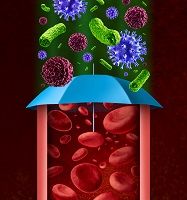Mystery Solved: Exposed to HIV But Never Infected
A proportion of people who are exposed to the human immunodeficiency virus (HIV) never become infected – but how? The long-awaited answer to this question has finally been determined.

A proportion of people who are exposed to the human immunodeficiency virus (HIV) never become infected — but how? The long-awaited answer to this question has finally been determined.
Researchers identified key immune responses that are responsible for preventing an individual from becoming infected. Even if an individual is not infected by a virus, T-cell responses can still be monitored. Therefore, the investigators aimed to uncover if those responses were the reason certain people remained uninfected from HIV.
The study was conducted by a collaborative team consisting of professionals from George Washington University (GW), University of California, San Francisco (UCSF), University of São Paulo (USP), and the Gladstone Institutes.
“What we found was what people have been looking for, for a long time — a correlation between future infection risk and a measureable immune response,” Douglas Nixon, MD, PhD, of GW School of Medicine and Health Sciences, said in a news release.
Data from the Pre-exposure Prophylaxis Initiative (iPrEx), the first trial of its kind in humans, provided specimen in order to examine HIV-specific immune responses. The peripheral blood mononuclear cell samples were collected from men who were exposed to the virus — including 84 who became infected at some point during the study and 480 who remained uninfected. The participant pool consisted of those who took pre-exposure prophylaxis (PrEP) with emtricitabine and tenofovir disoproxilfumarate (Truvada) or placebo.
“Our findings indicate that the host immune system interfaces with the virus or its proteins more commonly than previously thought,” said co-senior author Esper Kallas, of USP, “generating naturally induced immunity in the form of T-cell responses that contribute to a persistent HIV negative status in some exposed people.”
According to the findings published in Proceedings of the National Academy of Sciences, not only were HIV-specific immune responses witnessed in those who had virus but remained uninfected, but the T-cell responses were significantly higher and more frequent in those people. This suggests that the responses are linked to the risk of infection. The authors noted that PrEP proved to be highly effective for HIV prevention.
“Whether taking drug or placebo, the observed immune responses were still present,” explained Robert Grant, the protocol chair of iPrEx, “so the protective benefit we saw with PrEP was not due to these immune responses.”
Future research will tell if a vaccine can cause the same responses in order to protect against the disease.